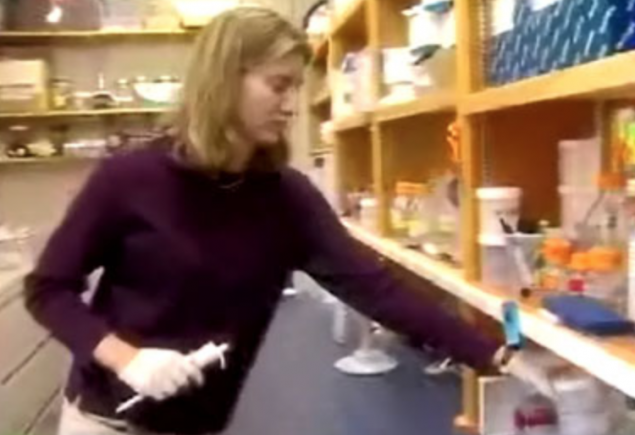You can hear more from Amy and her journey to become a deep-sea coral biologist here.

About the Job
What is your title?
Visiting Investigator.
Where do you work?
I work at the Woods Hole Oceanographic Institution.
Do you travel often? To where?
Yes. I travel to go on research cruises and to go to scientific meetings. It is rare that a month goes by without me being on an airplane or a ship or both. I have been to Australia, New Zealand, Indonesia, Japan, Chile, Antarctica, Hawaii, and several places in Europe. I have also been to many places in North America. The best places I have traveled though are down in submersibles. The deep sea is an incredible place!
What are the educational requirements for your job?
Getting involved in marine biology only requires an interest. We have had summer volunteers in the lab who were in high school. The level of education required is determined by how involved you would like to be and how much of a leading role you would like to take. A Bachelor’s degree is a good start. Most positions require at least a Master’s degree. If you are interested in becoming a Professor of Marine Biology or writing grants to take the lead in research, you will need a PhD.
What is the salary range for someone with your type of job?
I am currently just past the postdoctoral stage of my career. The postdoctoral stage is the time after you finish your Ph.D. Postdoc positions can last one to three years and because of the shortage of academic jobs for PhD marine biologists, most people will do two or more postdocs before they find a tenure-track position. Postdocs can make between $25,000 per year up to about $60,000 per year depending on the institution. Like being a graduate student, many postdoc positions do not come with benefits, or if they do, it is only limited health insurance. Many universities and research institutions are now making efforts to provide better salaries and benefits programs for postdocs and for graduate students.
How many hours do you work per week?
Scientists work long hours. About 50-60 generally, but during crunch times, like before a meeting or a cruise, it can be as many as 80 or more hours a week. At sea we work 7 days a week for 12-16 hours per day.
Job Duties
Tell us about your research and the types of things you do.
In general I am interested in the ecology and evolution of marine animals. Right now I have two main lines of research. One area of research focuses on the communities of animals that live on the skeletons of dead whales in the deep sea. Rotting whale bones develop a community of organisms that are dependent on chemosynthetic production, similar to the communities found around hydrothermal vents and cold seeps.
My other area of research is on deep-sea corals and seamount communities. I am studying the distribution of corals and other invertebrates on seamounts, how these invertebrates disperse between seamounts, and how they evolve. I am also studying how the corals reproduce and what types of invertebrates live on the corals.
What is the most fascinating thing you have ever seen or done?
That’s a tough one. Every time I see an animal alive in its natural habitat doing its own thing, I am in awe.
What are the personal rewards of your work?
I feel very fortunate that I get to see things that other people don’t usually get to see. The natural world is very different when you experience it first hand. I also have a fair amount of freedom and independence in my work, to decide what questions interest me and to seek opportunities to address those questions.
How does your work benefit the public?
Ocean ecosystems are affected by human behavior, but managers cannot make informed decisions about managing reserves without scientific data. For example, my work on coral population genetics will help managers to design the most effective strategies for conservation of precious corals. I have also contributed to outreach efforts to help educate the public about the oceans by contributing to television documentaries and newspaper and magazine articles.
What else could someone with your background do?
I have a strong background in molecular methods, so there are several options a person with my background could pursue. These include careers in biotechnology, bioinformatics, pharmaceuticals, or genomics.

